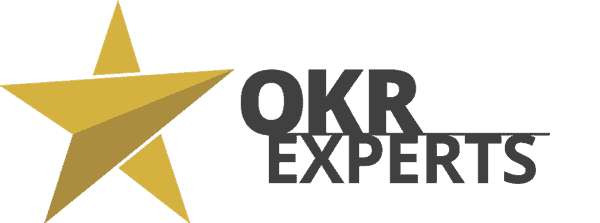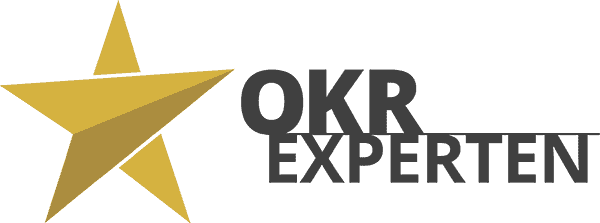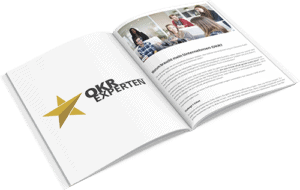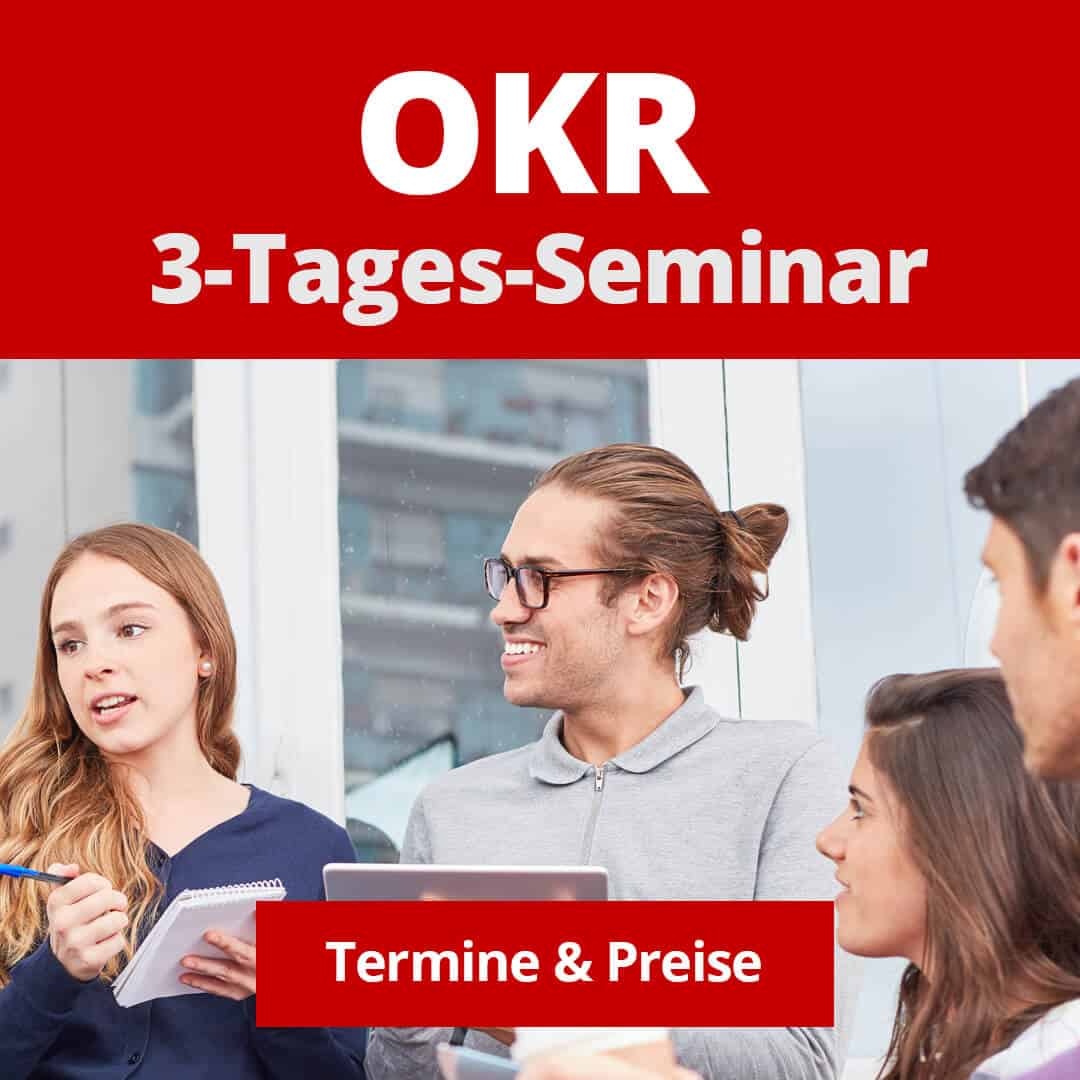How OKR helps German companies achieve greater focus and success
In the age of agile leadership, more and more modern German managers are turning to the OKR model from Silicon Valley. Zalando and BMW are among the first major German companies to adopt the alternative to previously established methods such as MBO and S.M.A.R.T.
What does OKR mean in German?
OKR – Objectives and Key Results literally means goals and key results. The O stands for Objective. The KR stands for Key Results.
An objective is a goal that qualitatively describes what needs to be achieved. A key result is a quantitative key result that describes how the objective can be achieved.
How the OKR model has captured Germany
OKR became more and more widespread in German companies from the turn of the millennium, but its history can be traced back to 1971. At that time, Intel CEO Andy Grove began to develop the “Management by Objectives” (MBO) method into what we now call the OKR model. Today, many large companies in the USA use the OKR model to achieve their goals. The most important are Google, Twitter, LinkedIn, Oracle and Intel.
Like many other trends from the USA, the OKR method has been adopted by many German companies. With success: if the market environment changes or the project does not work, German companies can react more agilely with OKR.
OKR at the German online mail order company Zalando
Zalando is one of Europe’s largest online fashion platforms. As many companies – including Google – have had good experiences with the framework, the company uses OKR to optimize its objectives and make them transparent. With the support of the two founders David Schneider and Robert Gentz, the Zalando Brand Solutions department was founded and OKR was implemented right from the start.
Source: https://www.perdoo.com/resources/how-zalando-sets-goals/
The introduction of OKR: challenges and successes
The introduction of OKR was preceded by lengthy research, with the pilot phase lasting nine months. The process resulted in an enormous growth of the team: while around 20 people initially worked on the implementation of the framework, the Brand Solutions department now has around 100 members – and the trend is rising.
The challenging part of the process was coordinating the OKR method between the different teams. The department’s objectives had to be adjusted at both team and individual level. OKR workshops are held at the end of each quarter, bringing together all the teams involved.
The success of OKR was reviewed before, during and nine months after the implementation process. This review is carried out differently in each department; in the Brand Solutions department, the level of satisfaction, commitment, focus and understanding of the team’s vision were surveyed. A significant improvement was observed in all these areas through the use of OKR.
Following the success of the OKR model in the Brand Solutions division, the framework was to be extended to the entire company, starting at management level and then to the larger departments. Training courses and workshops were held for this purpose. This process took place with the support of an OKR coach. A roundtable was also set up to discuss and further develop the OKR approach at Zalando. The Zalando-wide OKR alignment week also takes place at the beginning of each quarter. Its purpose is to coordinate the overarching OKRs of different teams and departments.
OKR in day-to-day business
There is no central OKR process at Zalando; instead, each team organizes its own objectives and key results. However, an OKR committee and the management review the OKRs at company level. There is also centralized support for employees.
In order to stay focused, Zalando set itself a limit of five goals at the beginning , each with a maximum of four key results. We are currently considering further reducing the OKRs in order to increase the focus.
Even if the term is rarely used, stretch goals are regularly realized at Zalando. The OKRs are evaluated here using a scale. OKR is not used to assess employee performance, but there are plans to incorporate the framework into performance reviews.
OKR at the German publishing group Axel Springer
Axel Springer is a publishing group that owns the Bild and Welt brands, among others. The company relies on OKR with the aim of improving communication between the teams and creating transparency and focus. What the company appreciates about the framework is that it works excellently as a communication tool and helps the teams to work in a focused manner.
Source: https://www.recrunauten.de/post/objective-and-key-results
The introduction of OKR
At the beginning, a kick-off workshop was organized at Axel Springer, where the method was presented and questions were clarified. In addition, a first OKR set has already been created. At Axel Springer, the OKRs are managed with Excel (here you can download our OKR template free of charge). The topic of OKR has been addressed regularly since its introduction: New targets are set every four months. This takes time, but also saves time. The OKRs in the respective teams are checked and evaluated by established OKR champions.
The process of developing, coordinating and prioritizing goals works top down and bottom up. At Axel Springer, this means that the management team defines the strategically relevant goals first. Based on this, the individual teams set their own OKRs, which they work towards.
Challenges during implementation
Initially there were problems setting the OKRs. The team level had difficulties deriving further objectives from the key results set by the management level.
It was also difficult to strike a balance between operational and strategic objectives.
In order to get to grips with problems like these, the topic of OKR is regularly addressed and developed further.
OKR at the German car manufacturer BMW
As there were no measures in place at BMW to set and manage targets for a long time, the many cooperating teams found it difficult to communicate quickly and efficiently. The introduction of Objectives and Key Results was an advantage for the entire company.
Since the introduction of OKR, managers and teams have met on a quarterly basis to set goals and priorities and bring all team members up to the same level (various OKR meetings at a glance). BMW relies on the creativity and motivation of its employees as the key to innovation. These are promoted by OKR processes that work top down and bottom up.
The OKR framework supports BMW’s teams in delivering the performance and innovation that each of them is accustomed to.
Source: https://medium.com/@BetterWorks/what-drives-a-bmw-executive-47d699bf0f0a
The OKR model at tutum GmbH
tutum GmbH, Nuremberg – founded in 2008 with the aim of supporting companies with intelligent solutions for document management, digital workflows and document recognition. Its clients include DEKRA, Zaquensis, expertum and TimePartner.
Conclusion: It is worth introducing OKR – even in German companies
Compared to Silicon Valley and the USA, relatively few companies in Germany are still working with OKR. In a world where the market environment is constantly changing, the focus on F.A.C.T.S. (Focus, Alignment, Commitment, Transparency and Stretch Goals) is becoming increasingly important. The outcome (benefit) is decisive for the survival of the company. Most methods, such as MbO, are not agile enough and are no longer up to date. They often failed due to the long-term planned process of strategy implementation, which does not do justice to the constant changes.
OKR offers an ideal strategy implementation and target management system to close the gap between long-term corporate goals and their iterative implementation. This makes the OKR model the ideal management tool and organizational model for shaping the digital transformation of any company.





